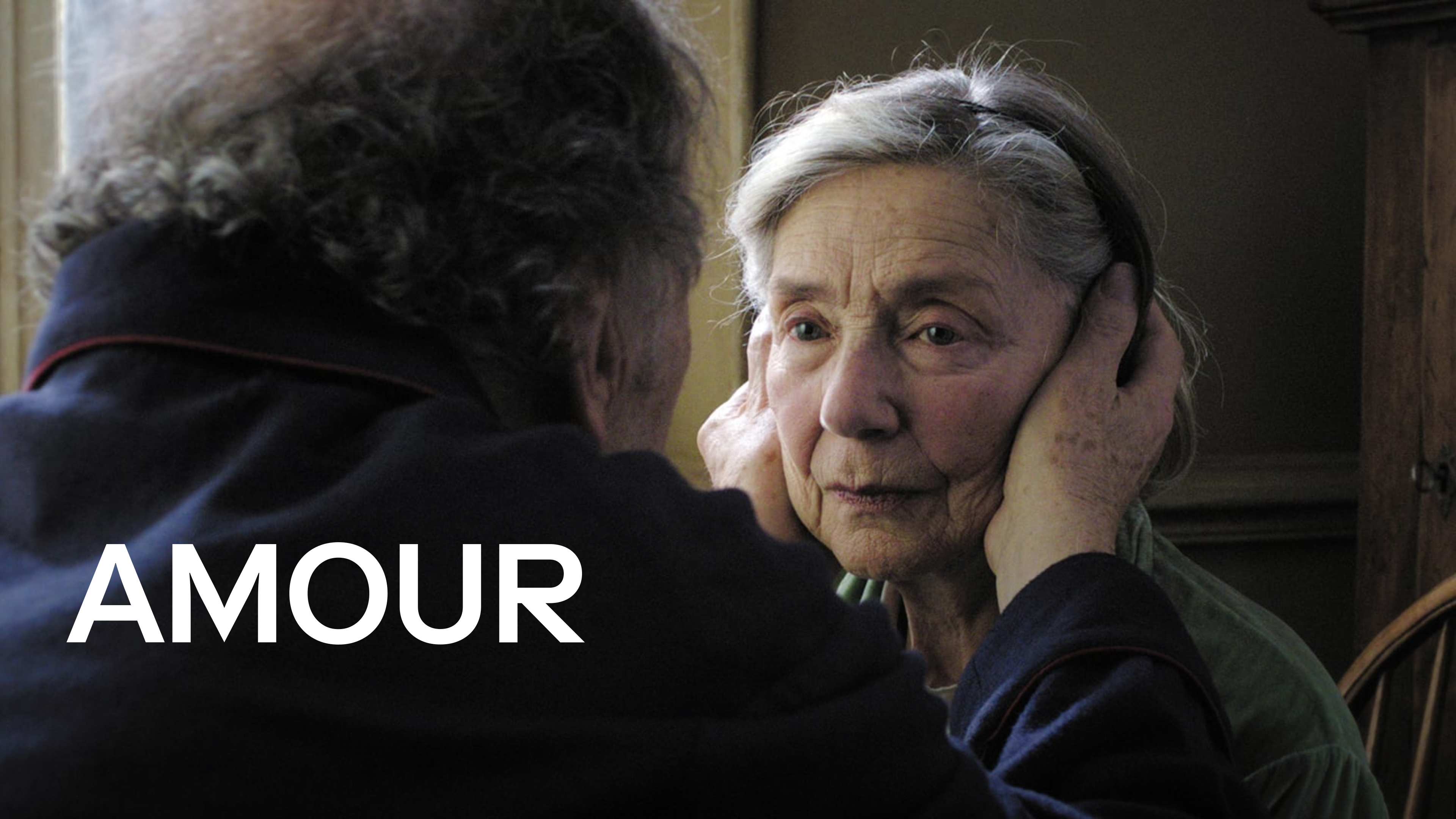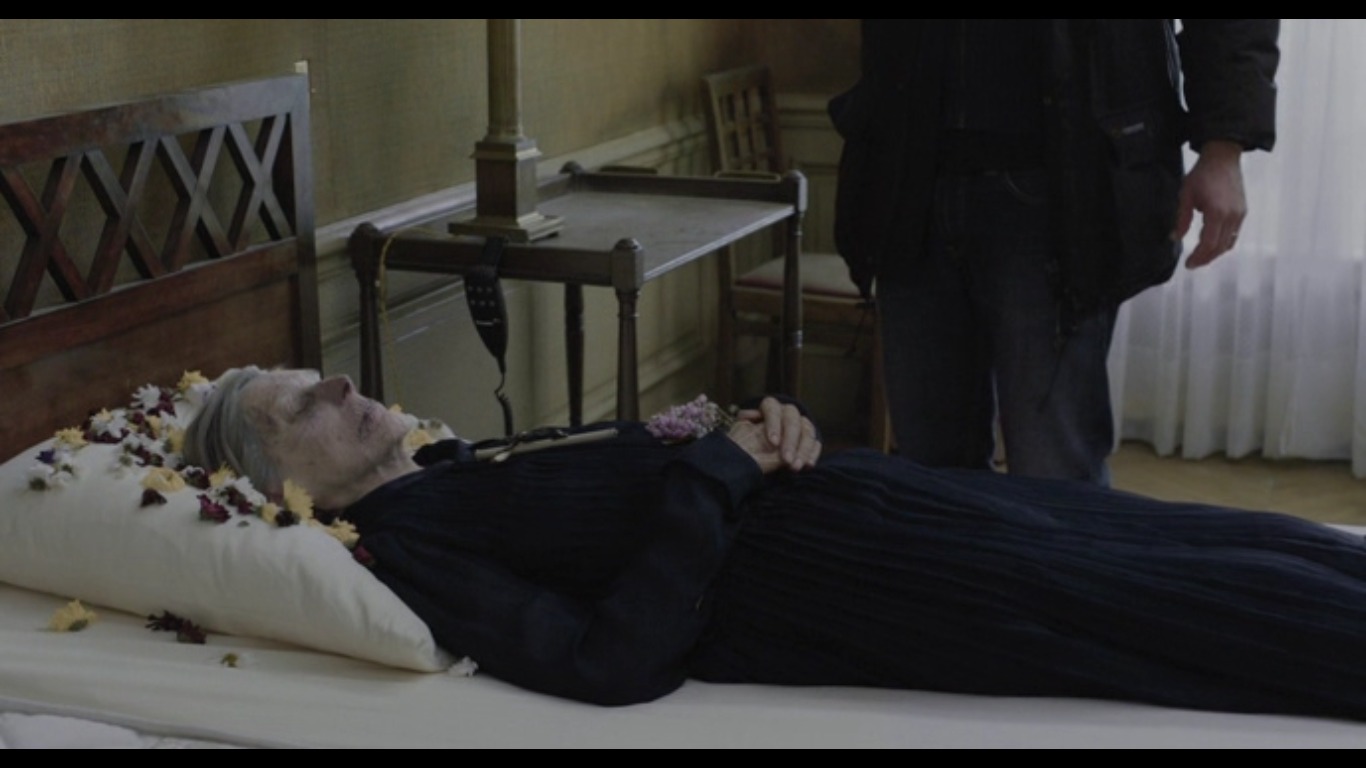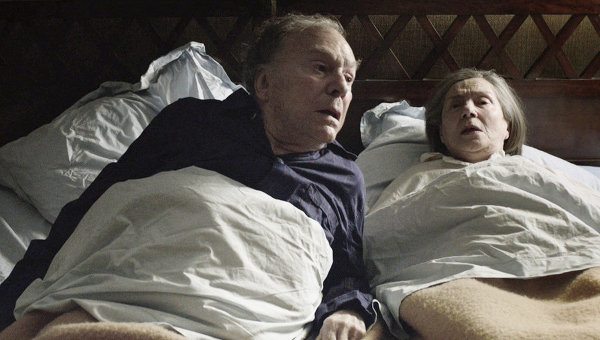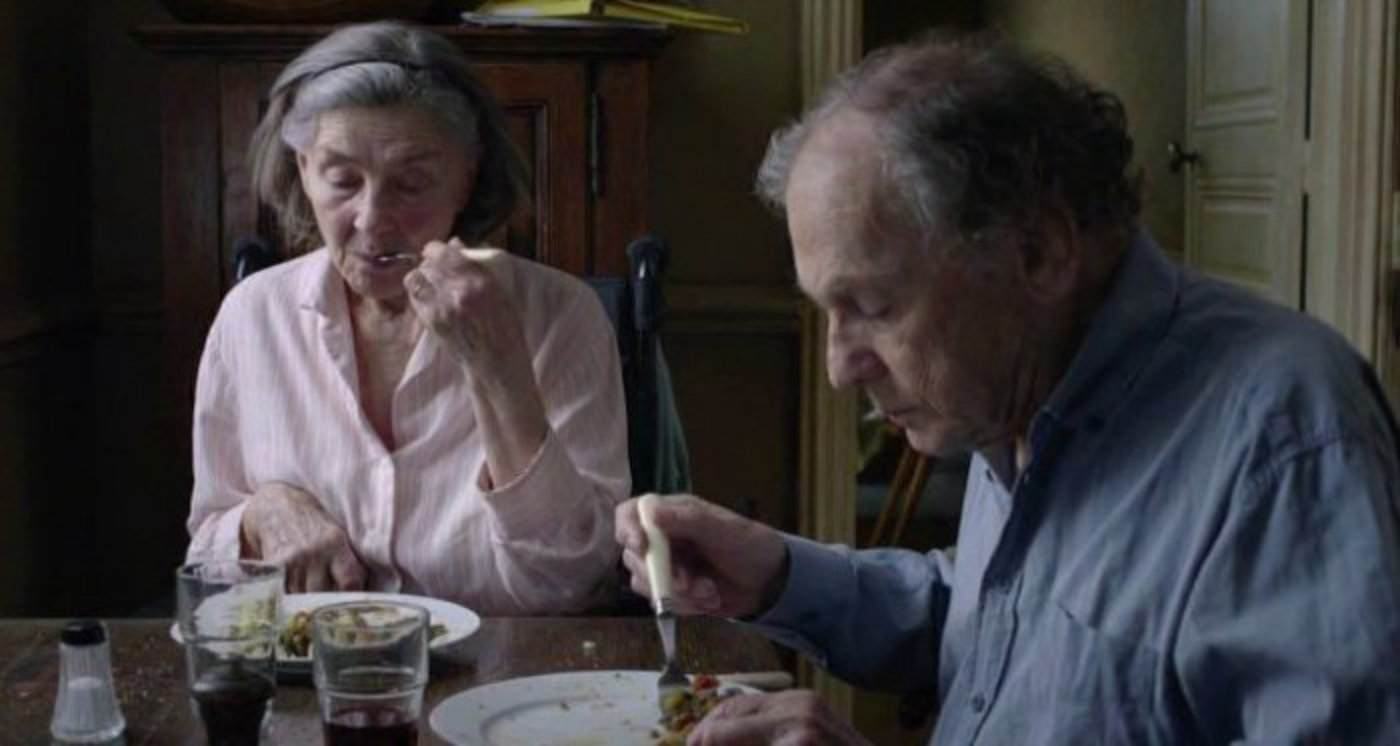Amour (2012)

“Amour” is a 2012 French-language film written and directed by Austrian filmmaker Michael Haneke. The movie features a remarkable cast, with Isabelle Huppert, Jean-Louis Trintignant, and Emmanuelle Riva in the lead roles. “Amour” is a deeply emotional and poignant portrayal of love, aging, and the inevitable process of dying. The film garnered international acclaim and was awarded the prestigious Palme d’Or at the Cannes Film Festival in 2012, a testament to its powerful storytelling and acting.
The plot centers around Georges (Jean-Louis Trintignant) and Anne (Emmanuelle Riva), an elderly couple who have spent their lives together, enjoying a peaceful and loving relationship. Their lives are turned upside down when Anne suffers a debilitating stroke, leading to a gradual decline in her health. Georges becomes her primary caregiver, and the film explores their intimate and increasingly difficult journey as Anne’s condition worsens. The film’s title, “Amour,” reflects the core theme of the movie—love in its purest and most unconditional form.
Jean-Louis Trintignant delivers a breathtaking performance as Georges, a man who is both devoted and heartbroken as he watches his wife’s physical and mental deterioration. His portrayal of a man grappling with the responsibility of caregiving, and the emotional weight of watching his partner fade away, is deeply moving. Emmanuelle Riva, who plays Anne, offers a powerful and tender performance, capturing the fragility and resilience of a woman facing the end of her life. The chemistry between Trintignant and Riva is heart-wrenching and authentic, making their relationship feel timeless and real.

The film’s slow pacing and minimalistic approach are deliberate choices by director Michael Haneke, who emphasizes the gravity of the couple’s situation without relying on melodrama or sentimentality. Haneke’s direction is subtle but masterful, allowing the audience to feel the emotional intensity of the story without resorting to heavy-handed techniques. “Amour” is not about the spectacle of illness but about the quiet moments between two people who have shared a lifetime together and are now faced with the painful reality of their limited time.

The cinematography of “Amour” further enhances the film’s emotional impact. The use of long takes and sparse dialogue creates an atmosphere of stillness and contemplation. The camera lingers on the characters’ faces, allowing the actors’ subtle expressions to convey the depth of their emotions. The setting, mainly confined to the couple’s apartment, emphasizes the isolation and confinement that comes with aging and illness, and highlights the intimate nature of Georges and Anne’s relationship.

In conclusion, “Amour” is a profound and moving film that examines the complexities of love, aging, and the inevitable approach of death. Through its masterful direction, exceptional performances, and thoughtful cinematography, Michael Haneke has created a film that resonates deeply with audiences. The film reminds us of the fragility of life and the enduring power of love, making it a powerful and unforgettable cinematic experience. “Amour” is a testament to the strength of human connection, even in the face of life’s most difficult challenges.











